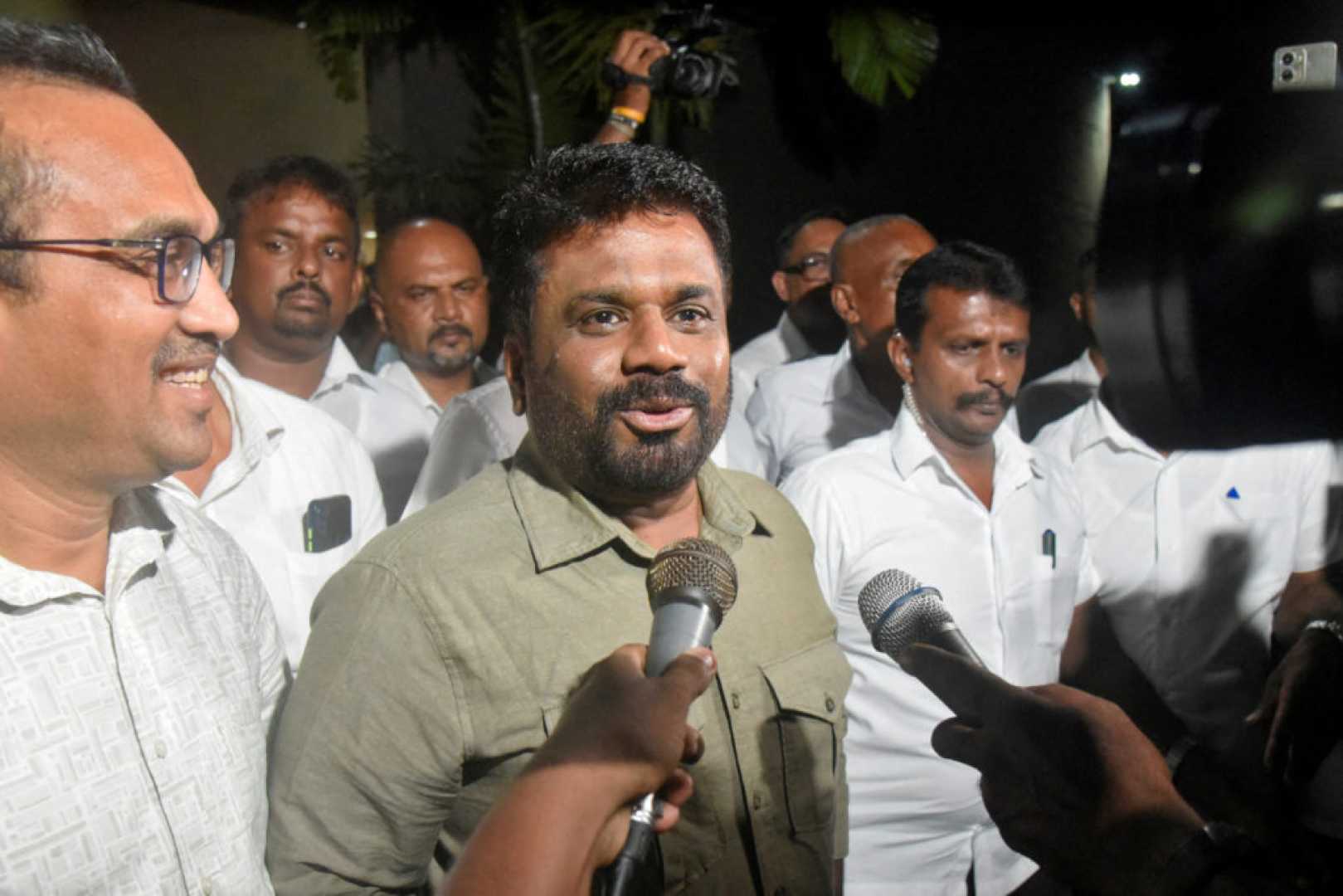News
Anura Kumara Dissanayake’s Journey to Sri Lanka’s Presidency

Anura Kumara Dissanayake, the leader of the National People's Power (NPP) coalition and a prominent figure in Sri Lankan politics, has been elected as the nation’s next president. His victory marks a significant moment for Sri Lanka, especially in the wake of economic turmoil that has gripped the island nation. Dissanayake managed to secure nearly 42% of the popular vote in the recent elections.
Dissanayake, often referred to by his initials “AKD,” was born in Thambuttegama village, Anuradhapura district in northern Sri Lanka. He rose from humble beginnings, being part of a lower-middle-class family. His father’s role as a daily wage worker and his mother’s as a homemaker did not deter them from supporting his education. He eventually graduated with a degree in physical sciences from the University of Kelaniya.
His political journey began during his university days when he engaged in student politics, leading him to join the Janatha Vimukthi Peramuna (JVP). The Marxist party was known for its anti-government stance, particularly during the uprising against then-President J. R. Jayewardene between 1987 and 1989.
Over the years, Dissanayake rose through the ranks of the JVP. In 1995, he became the national organiser of the Socialist Students Association, and by 1998, he was appointed to the JVP’s central working committee and later its political bureau. His political skill and influence were further solidified when he entered Parliament in 2000 and served as Minister of Agriculture between 2004 and 2005.
The JVP’s political journey has been marked by several alignments and strategic decisions, including opposition to peace talks with the Tamil rebel group LTTE (Liberation Tigers of Tamil Eelam) and alliance shifts such as joining forces with Mahinda Rajapaksa’s United People’s Freedom Alliance (UPFA) in the 2004 presidential elections.
Dissanayake’s leadership style is noted for being consultative and clear-headed. Vijay Herath, a fellow MP, highlighted Dissanayake’s ability to make informed decisions by considering various viewpoints. His charismatic and informed public speaking has also been a notable feature of his political career.
Throughout his career, Dissanayake and the JVP have taken strong stances against several issues. Notably, they have opposed Tamil political ambitions and the devolution of power, voicing against the Indo-Lanka Accord of 1987 and rejecting the Comprehensive Economic Partnership Agreement with India. They have also been critical of granting the Katchatheevu island back to India and have taken a firm stand on maintaining the territorial integrity of Sri Lanka.
As Sri Lanka anticipates the release of the next tranche from the International Monetary Fund (IMF) bail-out package, Dissanayake has indicated intentions to renegotiate the terms of the agreement. His presidency comes with high expectations as Sri Lankans seek economic and political stability.












